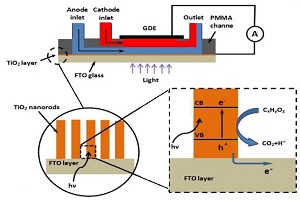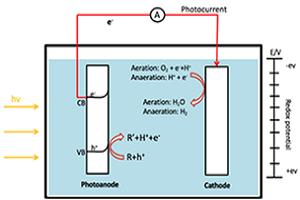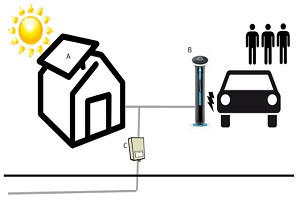Day 2 :
Keynote Forum
Michael K.H. Leung
City University of Hong Kong,China
Keynote: Photocatalytic fuel cell for wastewater treatment and recovery of energy resources
Time : 10:15-10:55

Biography:
Michael K.H. Leung is a Professor and Associate Dean in the School of Energy and Environment at the City University of Hong Kong. He is also the Director of Ability R&D Energy Research Centre at CityU. The areas of his experties include solar photocatalysis, fuel-cell electrochemistry and advanced refrigeration and air-conditioning. He is listed as a highly cited scholar in energy science and engineering by ShanghaiRanking and Elsevier. He has published 130+ journal papers, 70+ conference papers, 15 books/book chapters, and 6 patents. Prof. Leung is also a Past Chairman of the Energy Institute (Hong Kong Branch), Chairman in HKIE Education and Examinations Committee, a Chartered Engineer, and a Registered Professional Engineer.
Abstract:
Photocatalytic fuel cell (PFC) is primarily a synergistic integration of two emerging technologies, namely, photocatalysis (PC) and fuel cell (FC). Solar PC can decompose organic compounds while FC provides an electrical potential gradient to facilitate transport of electrons [1]. Therefore, PFC can be effectively applied to utilize solar energy for wastewater treatment and recovery of energy chemically stored in wastewater [2,3]. It is a promising technology for solving both environmental and energy problems. In order to conduct proper research for rapid development of PFC, we need to have good knowledge about the material properties and clearly understand the cell mechanisms of PFC. The Fermi level between the photoanode and the cathode forms interior bias that inhibits recombination of photogenerated electrons and holes, resulting in increase in visible-light activation of PFC [4]. Modification of photoelectrocatalysts and use of microfluidics are effective strategies for improving the PFC performance [5,6]. The PFC effects can also be manipulated by the system configuration, design and control for specific outputs and reaction rates. The speaker will present the fundamentals, latest development of PFC, and upcoming R&D challenges needed for enhancing the PFC technology.


Keynote Forum
Wilfried G.J.H.M. van Sark
Utrecht University,Netherlands
Keynote: Smart Solar Charging to support widespread deployment of photovoltaic systems and electric mobility
Time : 11:15-11:55

Biography:
Wilfried van Sark is associate professor at the Copernicus Institute of Utrecht University. He has over 30 years experience in the field of photovoltaics, ranging from thin film silicon and III-V solar cell experimental and modeling development and testing to solar cell processing development, out- and indoor performance of solar cells, policy and cost development. His current activities focus on employing spectrum conversion (down/up conversion) using nanocrystals to increase solar cell conversion efficiency for next-generation photovoltaic energy converters as well as performance analysis of (BI)PV systems in the field, in particular linked to the development of smart grid systems in the built environment.
Abstract:
Statement of the Problem: The transition to low carbon energy and transport systems requires not only the large-scale adoption of clean technologies and efficiency measures, but also new energy management strategies to efficiently incorporate these innovations. Grid integration of supply side technologies such as photovoltaics (PV) and demand side ones such as electric vehicles (EV) requires proper strategies for energy management. Smart solar charging using vehicle to grid (V2G) technology is a key element in matching supply and demand on a local level. Optimization of self-consumption and self-sufficiency would lead to lower stress levels on the local distributions grid. Methodology & Theoretical Orientation: The smart solar charging concept has been pioneered in Utrecht, and now will be extended in other pilot areas with different demographic characteristics. Analysis of PV generation and EV charging behavior will be combined with algorithm development, in order to optimize self-consumption and self-sufficiency. Findings: Increased self-consumption of PV can be reached only if car use agendas are known in combination with perfect solar forecasting. Conclusion & Significance: Smart solar charging has benefits in many ways: more EVs powered with clean energy, better local air quality, increased social cohesion due to the sharing aspect, lower amount of cars in the streets. Investment in local grid extension can be postponed, leading to economical benefits for distribution system operators and consumers.

